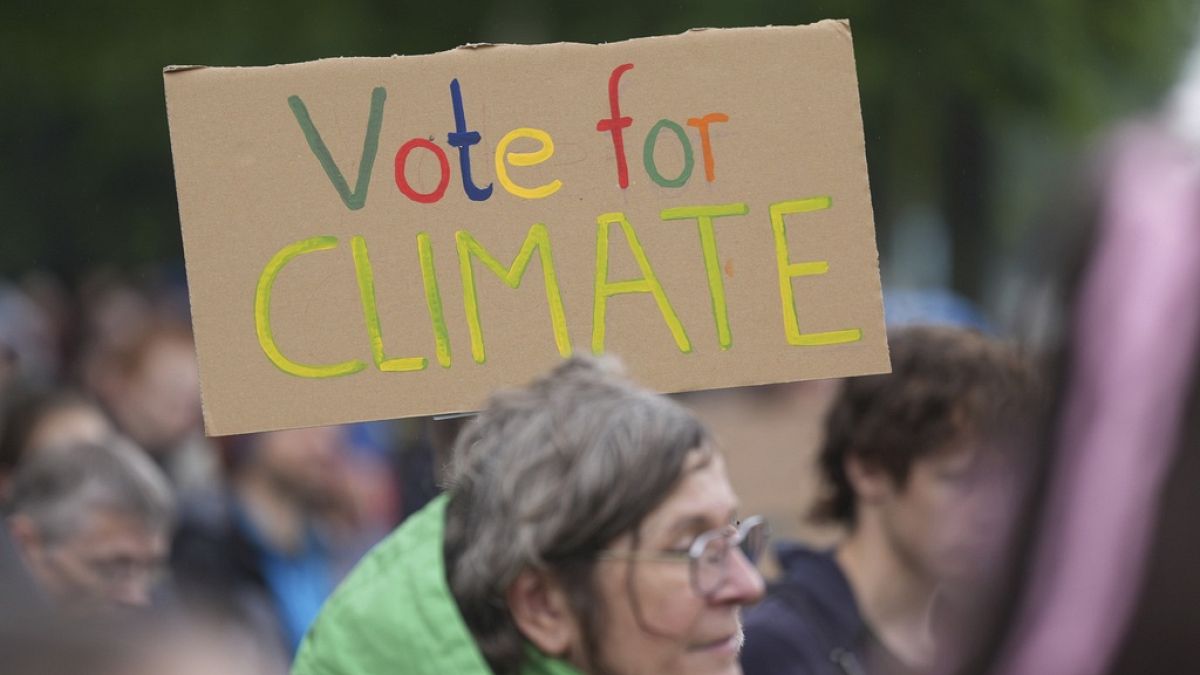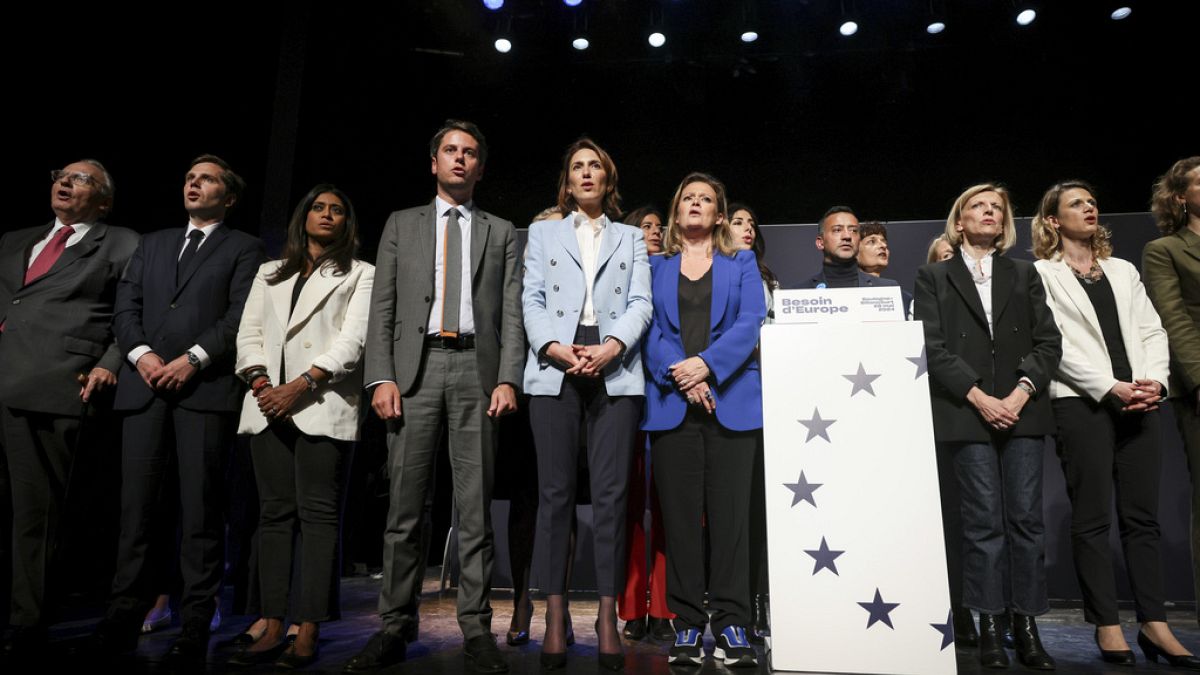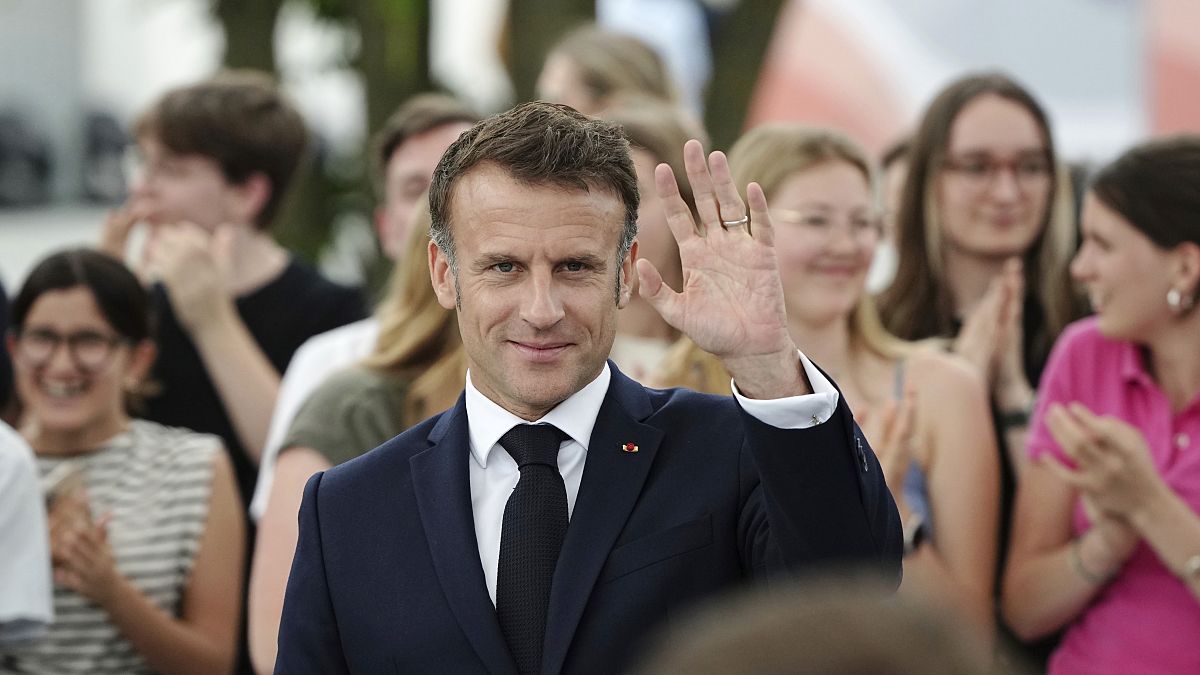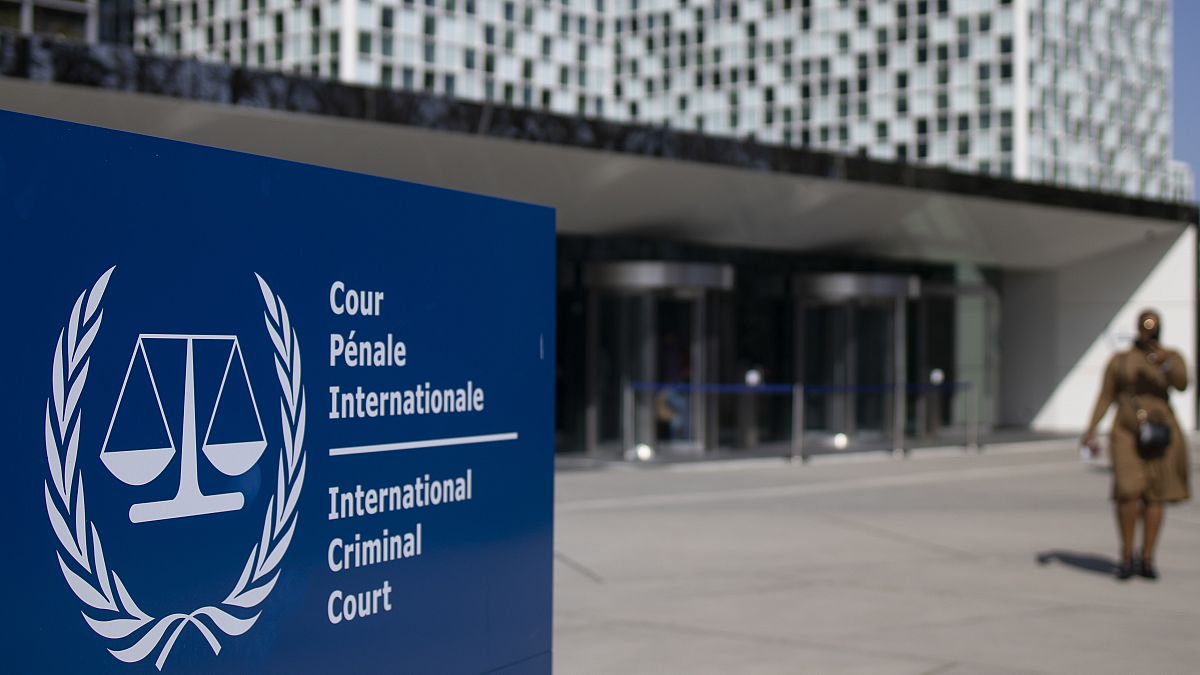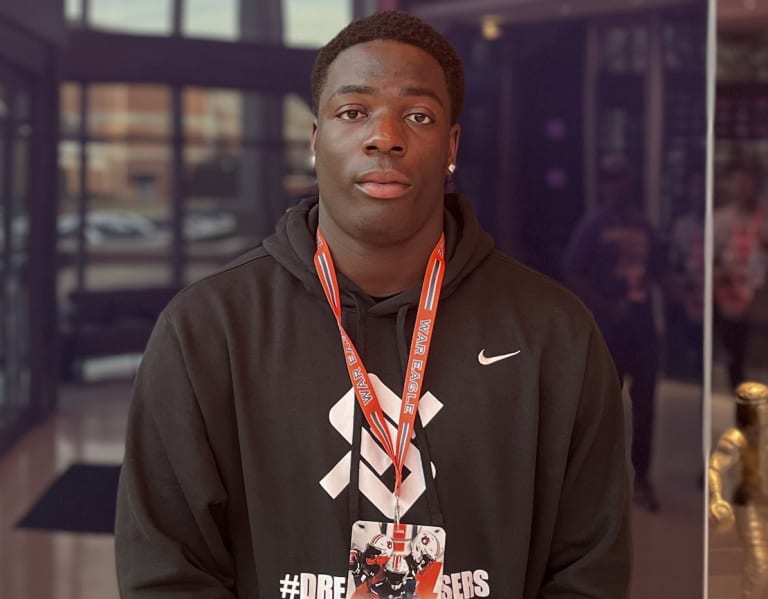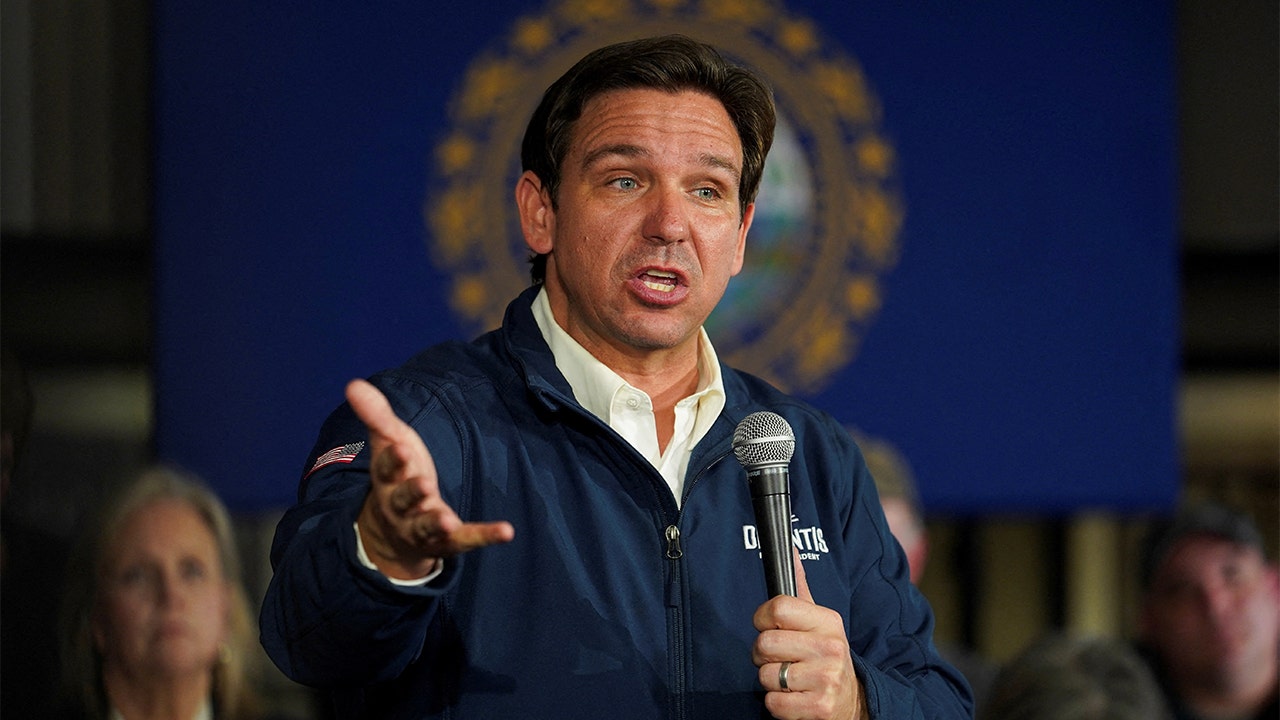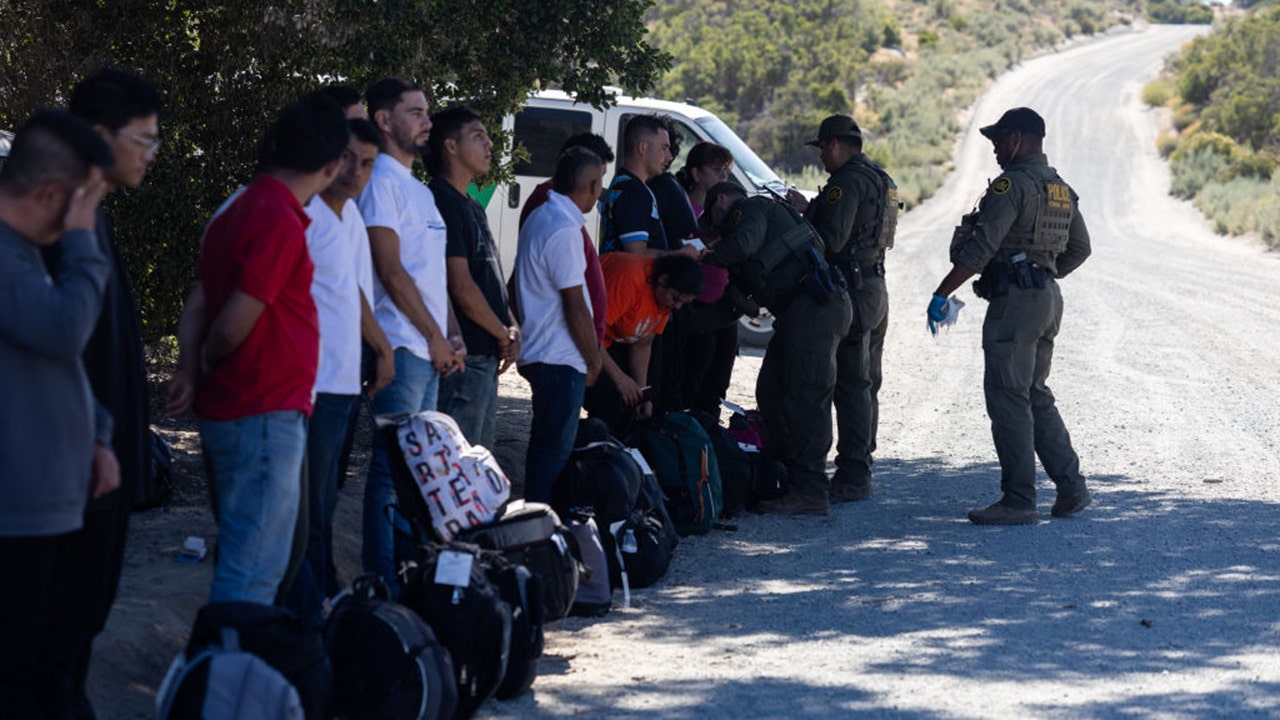World
Europe matters to consumers, and so does your vote

The opinions expressed in this article are those of the author and do not represent in any way the editorial position of Euronews.
What happens in Brussels does have an impact on our daily lives, more than we are aware of, more than we credit them for. Treating it like a second-rate election would not do it right, Els Bruggeman writes.
The European Union and its citizens, it remains a strained relationship. One full of mixed perceptions and mistrust, yet with high expectations.
Sounds like the recipe for some serious marriage counselling or the script of the better Hollywood rom-com? No, it’s just a European reality.
From love to hate, hate to love. It’s reminiscent of the Facebook relationship status, “It’s complicated”.
Taking stock of the last five years, a large-scale Euroconsumers survey shows little consumer satisfaction with the EU’s overall track record.
While people appreciate how Europe handled the COVID-19 pandemic, the EU’s approach to inflation and the cost of living crisis merely gets a staggering 12% approval rate.
This goes with an equally low level of trust in our EU institutions to address citizens’ major concerns for the future.
A recipe for disaster, one would think? Here’s where it becomes interesting. When presented with some concrete consumer measures, perception takes a remarkably sharp turn.
Having a right to get products repaired? Very important. Better protection against energy providers? Great. Protecting minors on social media? We love it.
Unknown equals unloved
Yet very few citizens are aware they have the European Union to thank for this. Even less feel properly informed about it.
Okay, 7 out of 10 know it is the EU that is putting a limit to their cars’ CO2 emissions, but when it comes to better cybersecurity and product safety, not so much.
Even longer-lasting and well-established consumer wins, like the right to send back a product when shopping online, no more roaming charges, or compensation in case of flight delays, don’t seem to ring an EU bell with half of Europe’s citizens.
That is baffling, knowing that most consumer-empowering rules originate from solid European legislation.
Consumers were certainly not lying when they indicated in the survey they knew very little about the European Union.
Of course it doesn’t help they feel little informed by their national media. And it for sure doesn’t help some national policymakers tend to blame Europe when something goes bad but claim it when it goes well.
That’s not what people want and expect from their leaders. On the contrary, 69% want them to act as Europeans first, and half want more Europe, not less.
That’s the funny thing: despite consumers’ scepticism and mistrust, they also express high hopes and big expectations.
Access to affordable medicines, sustainable and affordable food or fighting financial scams? Yes, please.
With 75% and more deeming this very important, citizens are giving the EU a clear mandate to deliver this for them. Together with a clear mandate comes a clear message: Europe, we count on you to rise to the challenge.
Your vote matters
On 9 June, it is up to European citizens to rise to the challenge and cast their vote.
Europe matters. What happens there does have an impact on our daily lives, more than we are aware of, more than we credit them for. If we want Europe to lead for consumers, it is up to consumers to show the right direction.
Treating it like a second-rate election would not do it right. That’s why it is striking that at the time of the Euroconsumers’ survey, nearly half felt poorly or not informed at all about the different political election programs, and one out of three would just vote for the same party they vote for nationally.
With one month to go to the European election, it’s not too late yet.
To use the language of Taylor Swift, one of the most influential women of today, whether we’ll end up with a “Lover” or rather a “Tortured Poets Department” is up to our new European leaders and to the European people.
Els Bruggeman is Head of Advocacy and Enforcement at Euroconsumers. At Euronews, we believe all views matter.
Contact us at view@euronews.com to send pitches or submissions and be part of the conversation.

World
All Four ABBA Members Reunite to Be Knighted at Royal Ceremony in Sweden

ABBA fans had not necessarily expected to see the group together again after previous statements that they had no further plans to reunite after recording a 2021 comeback album. But the prospect of being knighted brought all four members back together again Friday in their native Sweden, as they showed up at the royal palace in Stockholm to be honored by the king and queen.
Bjorn Ulvaeus, Anni-Frid Lyngstad, Agnetha Faltskog and Benny Andersson (pictured above, left to right) were receiving the Royal Order of Vasa, establishing them as Commanders of the First Class, for “very outstanding efforts in Swedish and international music life.”
The knighthoods for the quartet followed by four days Andersson and Ulvaeus appearing at the ABBA Arena in London Thursday to celebrate the second anniversary of “ABBA Voyage,” the avatar show that has been successfully playing at the custom-built venue. Andersson and Ulvaeus did a Q&A for the audience of approximately 3,000 at the London event, at which Lyngstad and Faltskog did not appear.
The particular knighthood that the four members were being honored with in Stockholm had been dormant for a half-century, until the granting of knighthoods to ordinary Swedish citizens was revived in 2022. ABBA’s members were among a crop of 13 being celebrated on Friday, the first to receive it since the process was reopened two years ago. Candidates were nominated by both the general public and the Swedish government. The ultimate honorees were selected by King Carl XVI Gustaf, who handed out the knighthoods to ABBA on Friday alongside queen Silvia. Others being knighted along with the pop group included two physicists who were 2023 winners of the Nobel Prize.
At the London Q&A celebrating the two-year anniversary of the so-called ABBA-tar show, with Pete Paphides asking the questions, Andersson and Ulvaeus did not say much about future plans, although they did respond enthusiastically to the idea of their avatars taking a break from their permanent home there to perform at Glastonbury. “Oh yes, I think that’s a brilliant idea,” said Ulvaeus. Andersson added that he might tag along if that ever happened, saying, “If they go to Glastonbury, I think we’d need an extra piano player.”
In reality, there don’t appear to be any fresh prospects for IRL ABBA reunions, following their Grammy-nominated “Voyage” reunion album three years ago. In a 2022 interview with Variety, Andersson was firm about the last chapter of ABBA’s career together being closed. “It’s never say never, but it’s a no. Nothing is going to happen after this,” he said then. “Yes, [the ‘Voyage’ album] did well. But no.”
At this week’s London Q&A, the songwriting team seemed chipper and wistful, in a primarily reminiscing mode.
“It’s very, very hard to grasp emotionally that we wrote these little songs and it gave rise to this, and the millions of people we have touched,” Andersson said, in front of an audience that included celebrities like Rick Astley and Joanna Lumley. “We know it’s true, but it’s very hard to understand. Maybe impossible.”
“I’ve seen the show so many times and I think we look good up there,” added Ulvaeus. “But I have no idea what it really is that makes people have it in them to want to listen to music that was done 50 years ago, 40 years ago, 30 years ago.”
Although it did not arise as a topic of discussion at the London event, there has been talk back in the U.S. of a third “Mamma Mia!” film based on the group’s catalog, although it is not on the fast track. Producer Judy Craymer told Variety in October that it was inevitable. “I’m in the privileged position that I have Universal Studios wanting to do it, who I love working with, and I have a storyline,” she said, as part of talk about a talent competition show inspired by the original theatrical production. “It just always takes a certain amount of time with ‘Mamma Mia.’ Bjorn and Benny always take a certain amount of convincing. I don’t know how much more convincing they’re gonna have because everybody wants another film. But they had ABBA Voyage and then they wanted a rest from ABBA stuff. But it will happen.”
World
Trump verdict puts US among infamous countries that prosecuted opposition leaders: Who else is on the list?
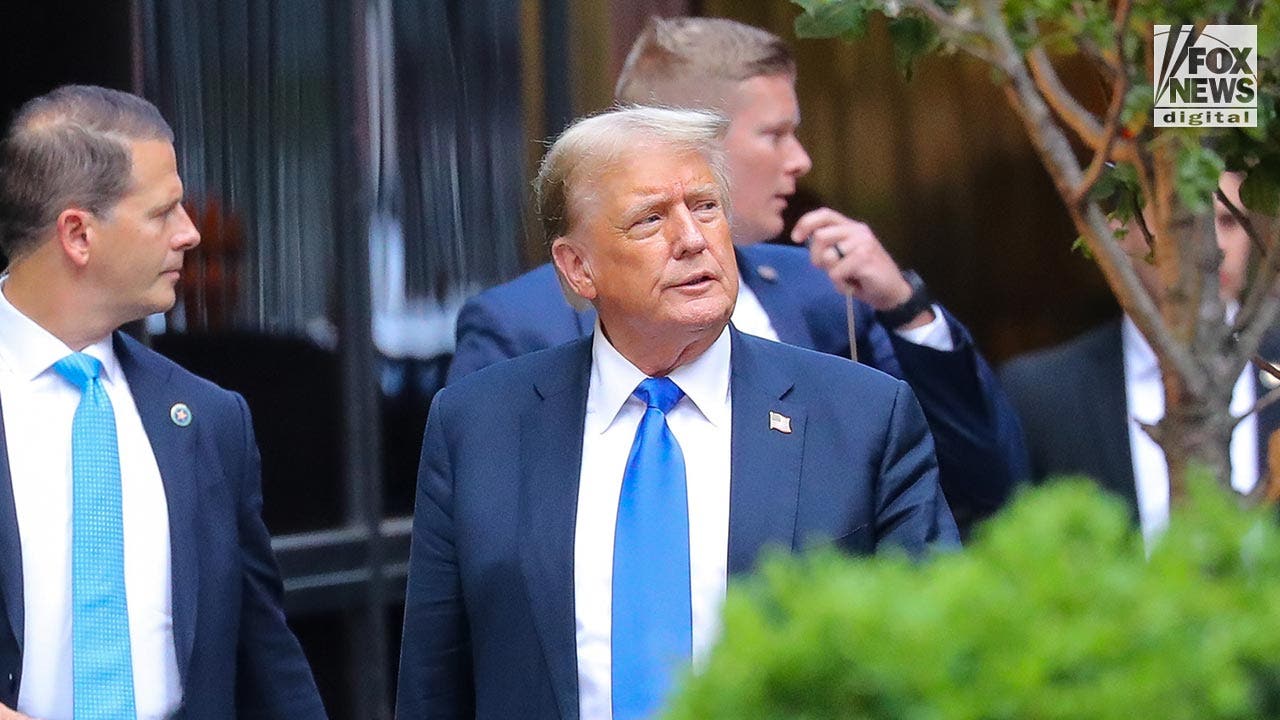
Former President Donald Trump joins a growing list of world leaders convicted after leaving office, with many critics in the U.S. claiming that such measures hurt the country’s image as a global leader.
A New York City court found Trump guilty of falsifying business documents related to payments made to Michael Cohen, who had paid porn actress Stormy Daniels ahead of the 2016 election. World leaders largely offered restrained comment on the verdict, but some of Trump’s closest allies criticized the decision and urged him to “keep fighting.”
Many have argued that the former president was targeted for political reasons, citing the fact that other cases were opened against him around the same time – though the other three cases, such as the Georgia trial, were delayed – as well as Manhattan D.A. Alvin Bragg campaigning on his promise to go after Trump.
Trump insisted that his trial, which included a gag order preventing him from discussing the case, occurred to keep him out of the upcoming election because Democrats “can’t win at the ballot box.” Biden, meanwhile, has blasted any efforts to undermine the decision as “reckless” and “irresponsible” while quipping that he had “no idea I was that powerful” in response to claims he had orchestrated the trial.
TRUMP’S GUILTY VERDICT REVEALS SPLIT AMONG FORMER GOP PRESIDENTIAL PRIMARY OPPONENTS
Here are some other countries where opposition leaders or candidates have faced prosecution, sometimes even ahead of elections.
RUSSIA
No case in modern politics of opposition suppression stands as notorious as Russian President Vladimir Putin’s ongoing saga to keep his chief political rival Alexei Navalny out of office: Russian courts determined Navalny had violated probationary terms by leaving the country, during which time he suffered an attempt on his life while in Germany.
Russian opposition leader Alexei Navalny with his wife Yulia in Moscow, Russia, in September 2013. (AP/Evgeny Feldman)
The Russian court ultimately convicted Navalny on charges of extremism and sentenced him to 19 years in prison, where he ultimately died due to brutal conditions during his confinement. U.S. intelligence officials in April determined that Putin likely did not order Navalny’s death, even if they ultimately hold him responsible for the treatment that led to the politician’s death.
HONG KONG
Trump’s verdict overshadowed news out of Hong Kong that 14 opposition figures had been convicted of “conspiring to subvert state power,” drawing condemnation from watchdog groups such as Amnesty International, who called the decision “unprecedented” and “the most ruthless illustration yet of how Hong Kong’s National Security Law is weaponized to silence dissent.”
FORMER VP MIKE PENCE BREAKS SILENCE ON TRUMP’S NYC CONVICTION
Former lawmakers Leung Kwok-hung, Lam Cheuk-ting, Helena Wong and Raymond Chan are among the dozen defendants who could face life in prison when sentenced later this year, ABC News reported.
Prosecutors went after 47 democracy advocates who took part in an unofficial primary election that would have undermined the government’s authority through a potential constitutional crisis.
INDIA
Critics have accused Indian Prime Minister Narendra Modi of using the courts to prevent his main political rival Arvind Kejriwal, chief minister of the capital Dehli, from running and campaigning for the upcoming elections.
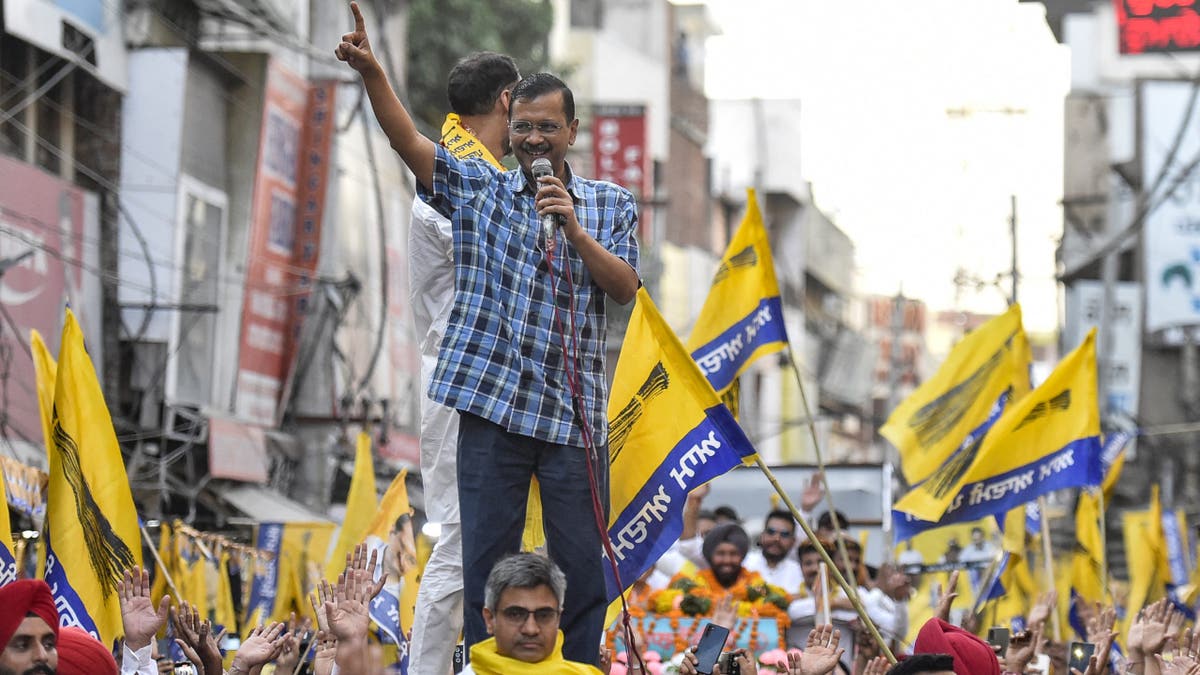
Chief minister of the capital Delhi and Aam Aadmi Party (AAP) leader Arvind Kejriwal (C) along with candidate Pawan kumar Tinu, addresses during at a roadshow ahead of the last phase of India’s general elections, in Jalandhar on May 27, 2024. (Shammi Mehra/AFP via Getty Images)
Several leaders of an opposition alliance remain under investigation, and Kejriwal’s party has accused the ruling Bharatiya Janata Party (BJP) of “political conspiracy,” according to Reuters. Kejriwal remains in pre-trial detention while awaiting a decision on his appeal against an arrest for alleged corruption related to Delhi’s liquor policy.
BIDEN MOCKED FOR ‘DISTURBING’ REACTION TO QUESTIONS ABOUT UNPRECEDENTED TRUMP VERDICT
India’s top court provisionally released Kejriwal from jail so he could campaign for the elections, which he has dramatically claimed will determine whether India “remains a democracy” and accused Modi of targeting rivals with criminal probes.
BRAZIL
Brazilian President Luiz Inacio Lula da Silva won re-election in 2022 after leaving prison due to the country’s Supreme Court nullifying his conviction on money laundering and corruption charges, citing serious biases in the case against him.
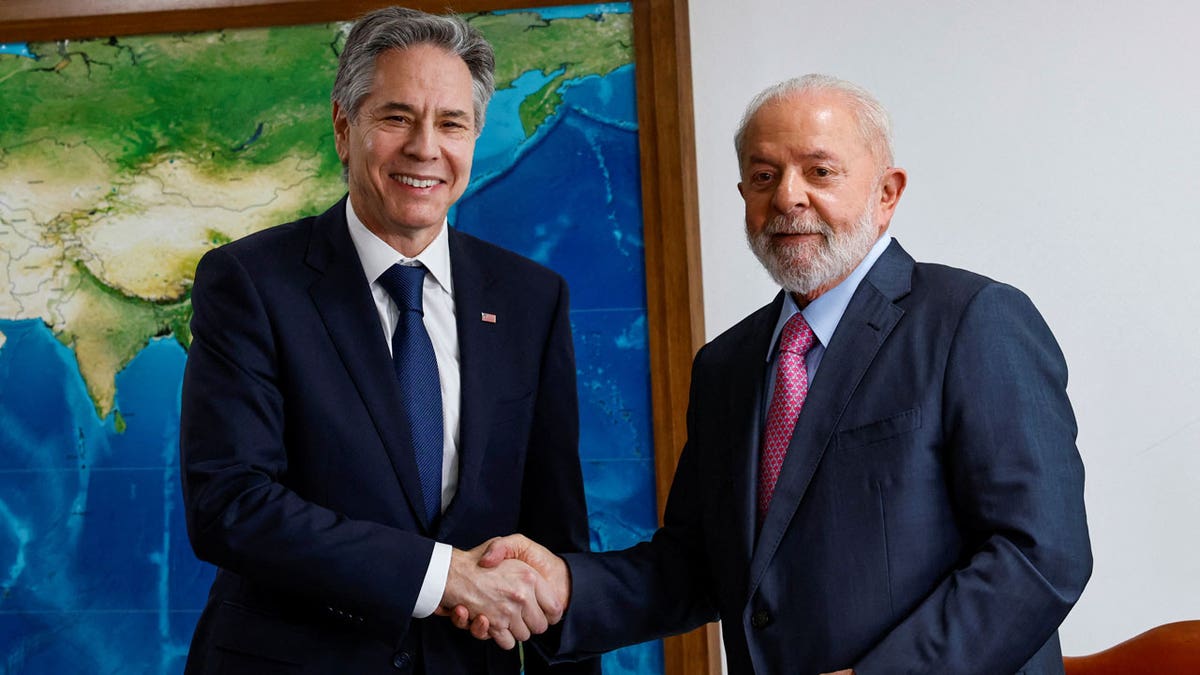
U.S. Secretary of State Antony Blinken meets with Brazil’s President Luiz Inacio Lula da Silva at the Planalto Palace in Brasilia, Brazil, February 21, 2024. (REUTERS/Adriano Machado)
Lula, arrested as part of “Operation Car Wash,” allegedly had traded favors with a construction company in exchange for the promise of a beachfront apartment. His arrest and conviction deeply divided Brazil and led to heated legal back-and-forth over the following years.
VENEZUELA
Venezuelan President Nicolás Maduro has seen a number of his opponents jailed for various crimes, with opposition leader Nelson Pinero of the center-right Encuentro Ciudadano party recently jailed on charges of incitement to hatred, El País reported.
BIDEN SAYS TRUMP ‘SHOULD’ HAVE OPPORTUNITY TO APPEAL CONVICTION, GRINS AND IGNORES QUESTIONS
The Bolivarian National Intelligence Service (Sebin) allegedly entered Pinero’s house without a search warrant. Another politician, presidential candidate Delsa Solorzano, denounced the arrest, saying that “Nelson is one more political prisoner of this dictatorship, which has taken 300 citizens to jail for thinking differently.”
Maduro also saw government opponents jailed in 2017 in a strong crackdown against a new government, jailing opposition leader Leopoldo Lopez and veteran politician Antonio Ledezma for planning to flee the country and violating house arrest terms by making political statements to the media, Reuters reported.
CAMBODIA
Kem Sokha, the Cambodian opposition leader, was convicted of treason and sentenced to 27 years in jail. He appealed his charges, which Amnesty International condemned as “baseless” and urged the country’s authorities to “end their ongoing crackdown against opposition groups.”
“Anyone who dares to speak out against the government is at risk,” Amnesty International’s Deputy Regional Director for Research Montse Ferrer wrote ahead of the appeal hearing.
“Cambodian authorities must respect, protect, promote and fulfill the human rights of everyone in the country including the rights to freedom of expression, peaceful assembly and association, and end the increasing restriction of civic space,” he added.
The Associated Press contributed to this report.
World
Thousands march in Budapest streets in support of Orbán
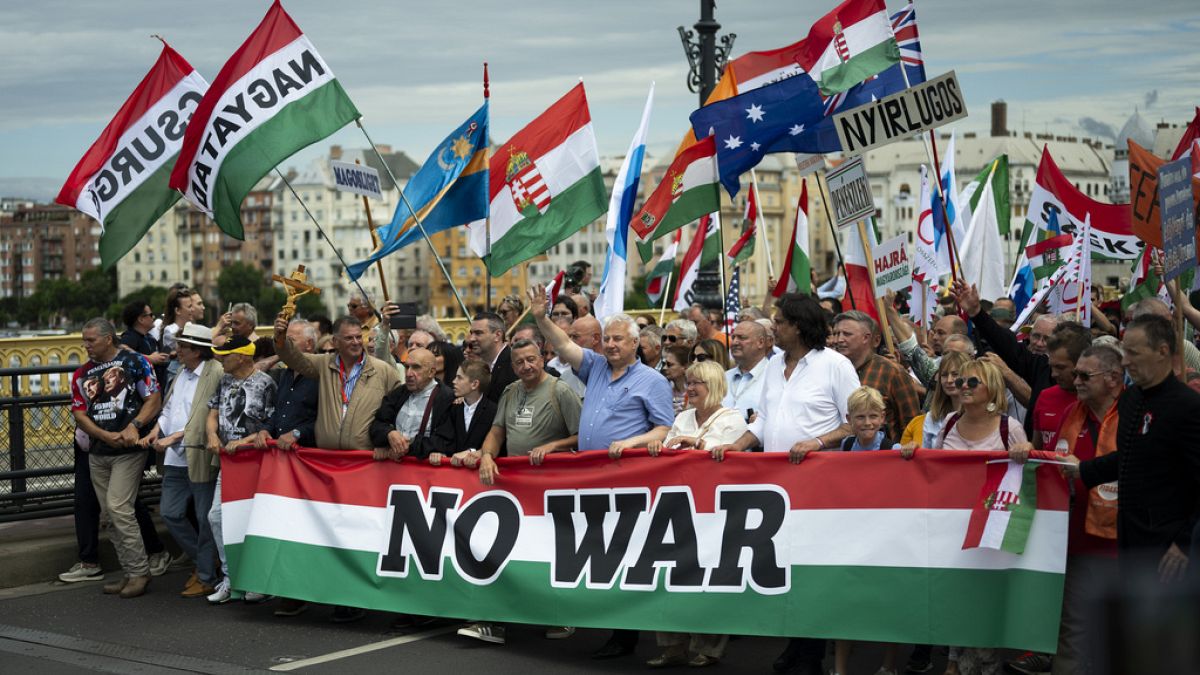
A crowd of tens of thousands gathered in Hungary’s capital on Saturday in a show of strength behind Prime Minister Viktor Orbán a week ahead of the European Parliament elections.
Tens of thousands took part in a so called ‘Peace March’ in Budapest on Saturday to show their support for Viktor Orbán and the Hungarian government.
Many of the marchers felt that the stakes in next week’s European Parliament elections (and local elections in Hungary) will be higher than ever.
“The whole world is dancing on a razor’s edge, war could break out at any moment. Everyone must speak up and stand for peace,” said one demonstrator.
Orbán’s supporters marched along the Danube River in Budapest from the city’s iconic Chain Bridge onto Margaret Island, waving flags and signs reading “No War.”
Orbán is the longest serving leader in the European Union, having been in power for the last fourteen years. He has focused his campaign for the European elections on the war in Ukraine.
Critics say his appeals for an immediate cease-fire in Ukraine would result in Russia being able to retain territories it has occupied.
In return, Orbán portrays his opponents as warmongers who seek to involve Hungary directly in the conflict.
-

 News1 week ago
News1 week agoRead the I.C.J. Ruling on Israel’s Rafah Offensive
-

 News1 week ago
News1 week agoVideo: Protesters Take Over U.C.L.A. Building
-

 World1 week ago
World1 week agoHoping to pave pathway to peace, Norway to recognise Palestinian statehood
-

 News1 week ago
News1 week agoLegendary U.S. World War II submarine located 3,000 feet underwater off the Philippines
-
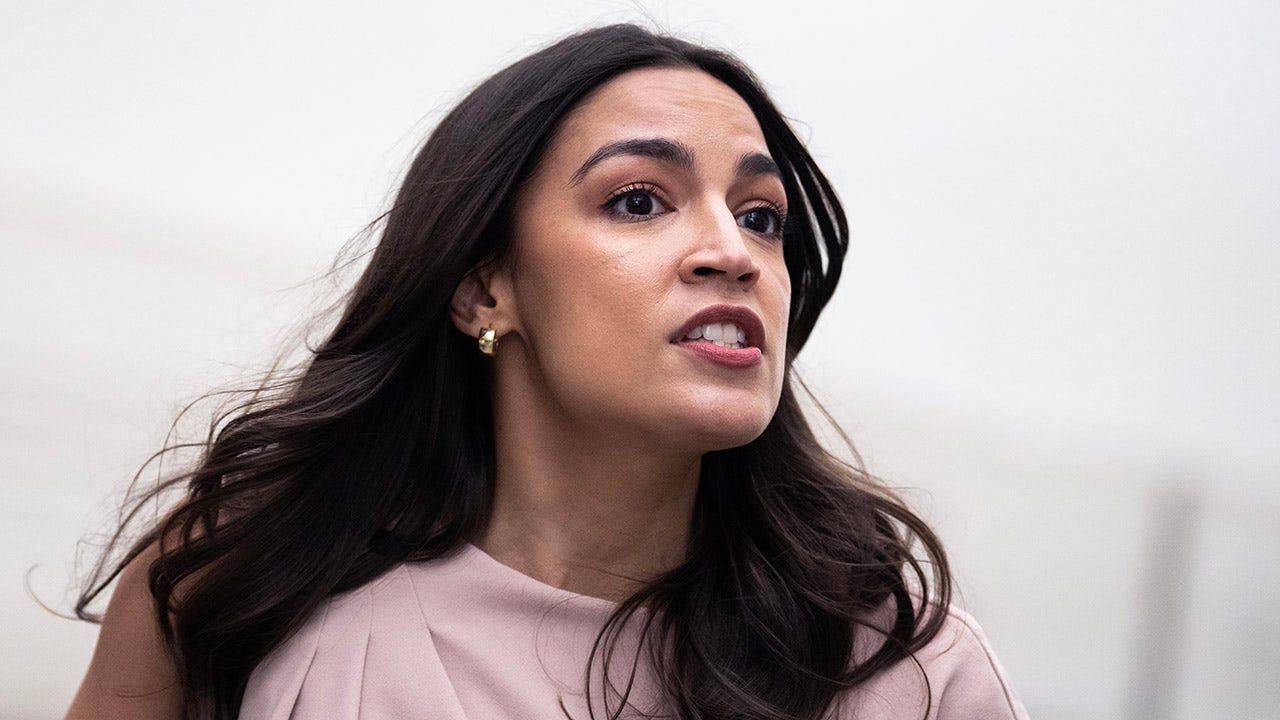
 Politics1 week ago
Politics1 week agoAOC demands Senate Democrats investigate reports of Jan. 6 flags flown at Supreme Court Justice Alito's home
-

 World1 week ago
World1 week agoFamilies of Uvalde school shooting victims sue Microsoft, Meta and gunmaker
-

 Politics1 week ago
Politics1 week agoHunter Biden attends pre-trial hearing in Delaware court on federal gun charges
-
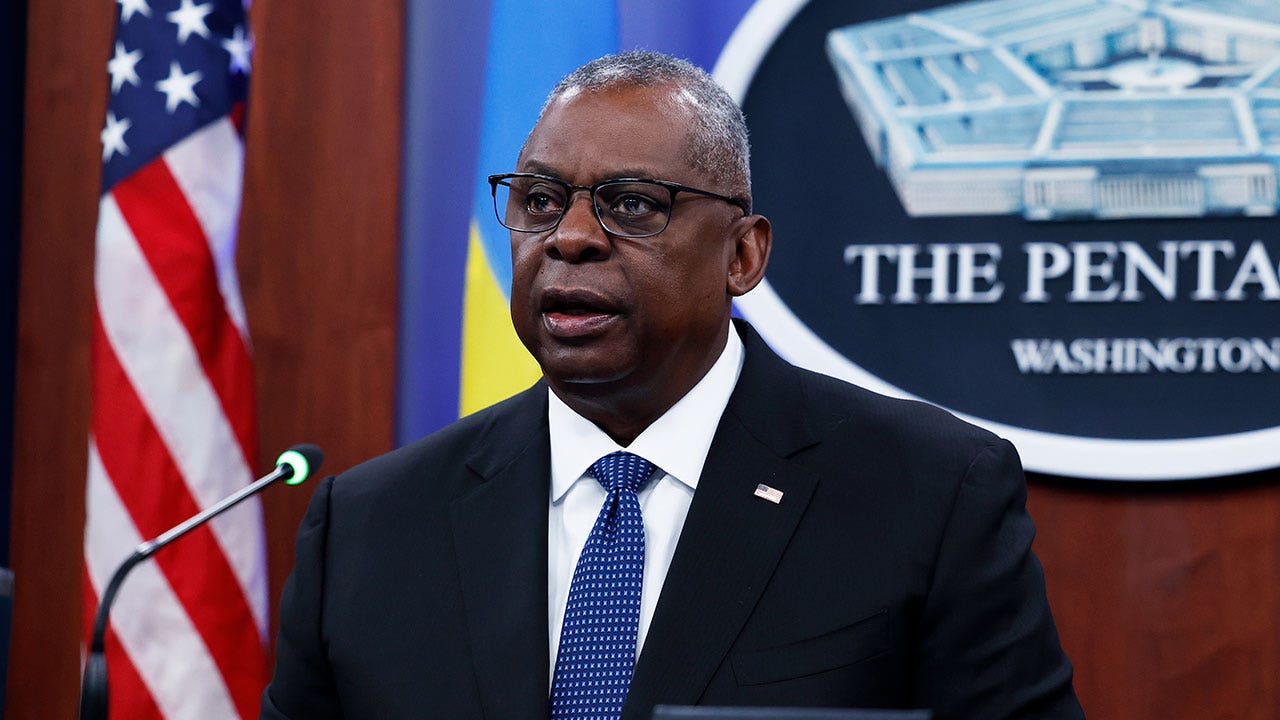
 Politics1 week ago
Politics1 week agoDefense Secretary Lloyd Austin to undergo nonsurgical procedure, Deputy Kathleen Hicks will assume control
